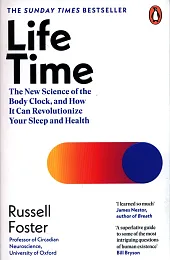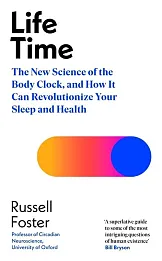Life Time. The New Science of the Body Clock, and How It Can Revolutionize Your Sleep and Health
Life Time. The New Science of the Body Clock, and How It Can Revolutionize Your Sleep and Health
Opis publikacji
In the twenty-first century, we increasingly push our daily routines into the night, carrying out work, exercise and our social lives long after dark. But we have forgotten that our bodies are governed by a 24-hour biological clock which guides us towards the best time to sleep, eat and think. In Life Time, Professor Russell Foster shares his life's work, taking us on a fascinating and surprising journey through the science of our body clocks. Using his own studies, as well as insights from an international community of sleep scientists and biologists studying circadian rhythms, he illustrates the surprising effects the time of day can have on our health, including: - how a walk outside at dawn can ensure a better night's sleep - how eating after sundown can affect our weight - the extraordinary effects the time we take our medication can have on our risk of life-threatening conditions,such as strokes In the modern world, we have neglected an essential part of o...
In the twenty-first century, we increasingly push our daily routines into the night, carrying out work, exercise and our social lives long after dark. But we have forgotten that our bodies are governed by a 24-hour biological clock which guides us towards the best time to sleep, eat and think.In Life Time, Professor Russell Foster shares his life's work, taking us on a fascinating and surprising journey through the science of our body clocks. Using his own studies, as well as insights from an international community of sleep scientists and biologists studying circadian rhythms, he illustrates the surprising effects the time of day can have on our health, including:- how a walk outside at dawn can ensure a better night's sleep - how eating after sundown can affect our weight - the extraordinary effects the time we take our medication can have on our risk of life-threatening conditions, such as strokesIn the modern world, we have neglected an essential part of our biology. But with knowledge of this astonishing science, we can get back into the rhythm, and live healthier, sharper lives.




